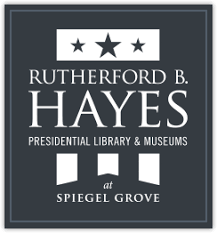CLS: Documentary Week
 Engage in thought-provoking documentaries and the stories behind them. This week’s Chautauqua Lecture Series is presented in collaboration with the Rutherford B. Hayes Presidential Library & Museum.
Engage in thought-provoking documentaries and the stories behind them. This week’s Chautauqua Lecture Series is presented in collaboration with the Rutherford B. Hayes Presidential Library & Museum.
“JFK: The Last Speech”
Monday, Aug. 19, 10:30 a.m. | Orchestra Hall
In this era of political tension, when civic culture is fractured, when the value of the liberal arts is questioned, a message from 1963 has particular resonance.
Twenty-seven days before he was assassinated, President John F. Kennedy came to Amherst College to honor the poet Robert Frost. He spoke of the relationship between poetry and power and of a view shared with Frost that power must be exercised, but wisely — tempered by moral restraint that is inspired by the arts and a liberal education. He spoke of the obligation of those “given a running start in life” to serve the public interest.
“JFK: The Last Speech” communicates the impact of this message through the stories of Amherst alumni and students and reflections by prominent scholars and political observers.
Produced by an award-winning filmmaker, this film ignites discourse on enduring values and on our shared responsibility for the public interest. It is a call to action to rebuild our civic sphere — infused with broad sympathy, understanding, and compassion.
“Paul Laurence Dunbar: Behind the Mask”
Tuesday, Aug. 20, 10:30 a.m. | Orchestra Hall
“Paul Laurence Dunbar: Beyond the Mask” is a feature-length documentary on the life and legacy of the first African-American writer to gain national and international fame.
Born to former slaves in Dayton, Ohio, where he was boyhood friends with the Wright Brothers, Dunbar (1872-1906) is best remembered for his poem “We Wear The Mask” and for lines from “Sympathy” that became the title of Maya Angelou’s famous autobiography “I Know Why The Caged Bird Sings.” A clip of Angelou reciting Dunbar’s poem is featured in the film.
But the man abolitionist Frederick Douglass called, “the most promising young colored man in America,” was far more than a poet. He also wrote short stories, novels, lyrics and searing, widely published essays critical of Jim Crow laws, lynching and what was commonly called “The Negro Problem.”
During his day, Dunbar’s stature was comparable to that of his friends, W.E.B. DuBois and Booker T. Washington. Over the decades, a vast number of schools, community centers and theaters have been named for Dunbar, as well as hospitals, hotels, Masonic lodges, apartment complexes and even a bank.
Generations of African Americans grew up reciting his verse at home and in church. Though he longed to be recognized for the poems he composed in standard English, those written in so-called plantation dialect are among his most enduring, but subsequent generations have sometimes seen them as perpetuating uncomfortable stereotypes.
The documentary places Dunbar in historical context, touching on events such as the Wilmington Race Massacre of 1898, and via interviews with several scholars who address his tempestuous marriage to fellow writer Alice Ruth Moore, his struggles with alcoholism and his premature death at age 33 from tuberculosis.
It also provides insight into how his achievements are celebrated today by artists, writers and musicians.
More than 10 years in the making, “Beyond The Mask” received major funding from the National Endowment for the Humanities with additional support from Ohio Humanities.
“The Ride Ahead”
Tuesday, Aug. 20, 3:30 p.m. | Orchestra Hall
This film follows Samuel Habib, a typical 21-year-old, itching to move out, start a career and find love. Can a community of disability activists help him follow his dreams?
For Habib, every right of passage seems fraught with challenges, like unexpected seizures and uncontrollable movements caused by his rare genetic disorder or friends’ homes that are inaccessible to his wheelchair. His labored speech and use of a communication device are barriers to a social life. He craves more independence and a family of his own one day. “No one tells you how to be an adult,” he says, “let alone an adult with a disability.”
Habib is determined to avoid the statistical realities: unemployment, isolation and institutionalization. A turning point comes when he starts talking to disabled adults who have been through all he is going through now. When he begins to channel their insights, a roadmap for himself, and for other young adults like him, begins to take shape.
“The Blue Angels”
Tuesday, Aug. 20, 8 p.m. | Orchestra Hall
This 2024 film follows the veterans and newest class of Navy and Marine Corps flight squadron as they go through intense training and into a season of heart-stopping aerial artistry.
The idea for the film came from Rob Stone and former Blue Angel Greg “Boss” Woolridge. It was produced by JJ Abrams and Glen Powell, who flew with the Blue Angels while filming “Top Gun: Maverick.”
The film documents the journey of becoming a Blue Angel, beginning with the ways they are selected and trained and culminating in the challenges of the Blue Angel show schedule. The movie shows the skill of the pilots without staging or computer-generated imagery.
“The Biggest Little Farm”
Wednesday, Aug. 21, 10:30 a.m. | Orchestra Hall
The 2018 American documentary film chronicles the eight-year quest of John and Molly Chester as they trade city living for 200 acres of barren farmland and a dream to harvest in harmony with nature.
Through dogged perseverance and embracing the opportunity provided by nature’s conflicts, the Chesters unlock and uncover a biodiverse design for living that exists far beyond their farm, it’s seasons and our wildest imagination.
Featuring breathtaking cinematography, captivating animals and an urgent message to heed Mother Nature’s call, “The Biggest Little Farm” provides us all a vital blueprint for better living and a healthier planet.
“Buena Vista Social Club”
Thursday, Aug. 22, 10:30 a.m. | Orchestra Hall
A group of legendary Cuban musicians whose talents had been virtually forgotten following Castro’s takeover of Cuba, are brought out of retirement by Ry Cooder to record a CD.
In this documentary, we see and hear some of the songs being recorded in Havana. There is also footage from concerts in Amsterdam and New York City’s Carnegie Hall.
In addition, many of the individual musicians, some as old as 90, talk about their lives in Cuba and about how they got started in music.
“The Invalid Corps”
Friday, Aug. 23, 10:30 a.m. | Orchestra Hall
Everyone thinks they know the story of the Civil War – four years of America’s bloodiest history. Over 600,000 men killed, more than 40,000 men with amputated limbs and even more with other injuries and illnesses.
What no one ever asked was, “What happened to those disabled men afterwards?” It is July 1864; a Confederate Army of 15,000 men is advancing on Washington, D.C. The North has already sent every able-bodied soldier to Petersburg. All that is left to defend Washington are clerks, government officials and the Invalid Corps.
Made up of men injured in battle or by diseases, these “hopeless cripples” will hold out for a desperate 24 hours until Union General Grant can send reinforcements. With Abraham Lincoln himself on the ramparts of Fort Stevens, they cannot afford to fail.
The story of “The Invalid Corps” offers a poignant perspective allowing us to reassess what we know, or rather what we think we know about the Civil War history, disability, sacrifice and honorable service.

This event is included with your Daily, Weekly or Season Chautauqua Pass.
Date
- Aug 19 - 23, 2024
- Expired!
